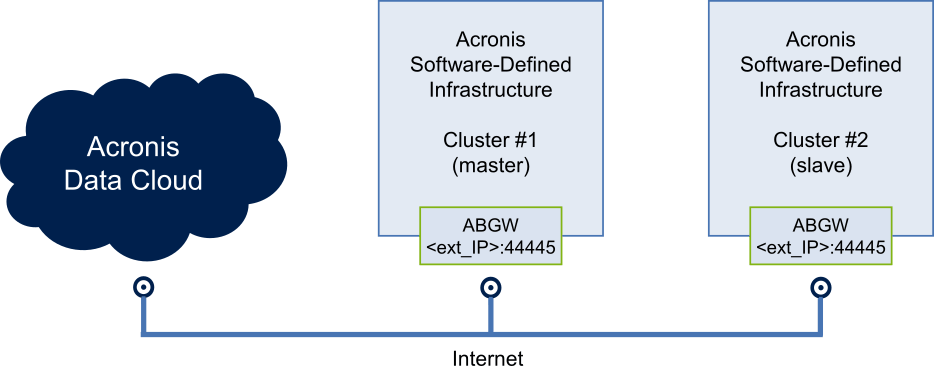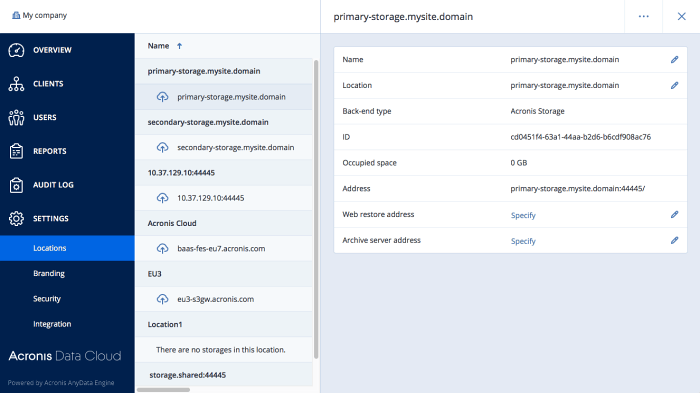7.7. Enabling Backup Gateway Geo-Replication¶
Make sure the following prerequisites are met:
- Two or more storage clusters with ABGW are deployed.
- All storage clusters are updated to the latest version.
- All storage clusters can ping each other via IP addresses or domain names on port 44445.
- All storage clusters are registered in Acronis Backup Cloud.
To set up geo-replication between two storage clusters, a master and a slave, do the following:
Find out the
dc_uidvalues from/mnt/vstorage/vols/acronis-backup/conf.d/dc_uidon both the master and the slave.Copy the
/mnt/vstorage/vols/acronis-backup/certs/abgw.pemfiles from both the master and the slave to a machine from which you will configure replication (i.e. runvstorage-abgw-ctl). For example, tomaster_abgw.pemandslave_abgw.pem, respectively.Configure replication:
# vstorage-abgw-ctl replication \ --master-addr <master_DNS_name> --master-cert master_abgw.pem --master-uid <master_dc_uid> \ --slave-addr <slave_DNS_name> --slave-cert slave_abgw.pem --slave-uid <slave_dc_uid> \ --enable /<account-name>
This command will enable replication of existing files. If new files are added to an account, the command will need to be re-run. For more convenience, you can set up a cron job that will run the following script automatically on one of the storage nodes:
#!/bin/bash
cd /mnt/vstorage/vols/acronis-backup/storage
for dir in *; do
vstorage-abgw-ctl replication \
--master-addr <master_DNS_name> --master-cert master_abgw.pem --master-uid <master_dc_uid> \
--slave-addr <slave_DNS_name> --slave-cert slave_abgw.pem --slave-uid <slave_dc_uid> \
--enable /$dir
done
If PEM certificates expire, update them in the web interface and exchange them between clusters once again.
If a failover to the slave replica is needed, contact the technical support team. A tool for performing unassisted failovers will be added in a future update.
With geo-replication set up, clusters exchange data as pictured on the diagram.

Where <ext_IP> are external IP addresses of each cluster. The DNS configuration will be as follows:
- primary-storage.mysite.domain will resolve to 1.2.3.4, 1.2.3.5, etc. (external IP addresses of cluster #1)
- secondary-storage.mysite.domain will resolve to 5.6.7.8, 5.6.7.9, etc. (public IP addresses of cluster #2)
In your Acronis Data Cloud admin panel, on the SETTINGS > Locations screen, you can see configuration like this:

